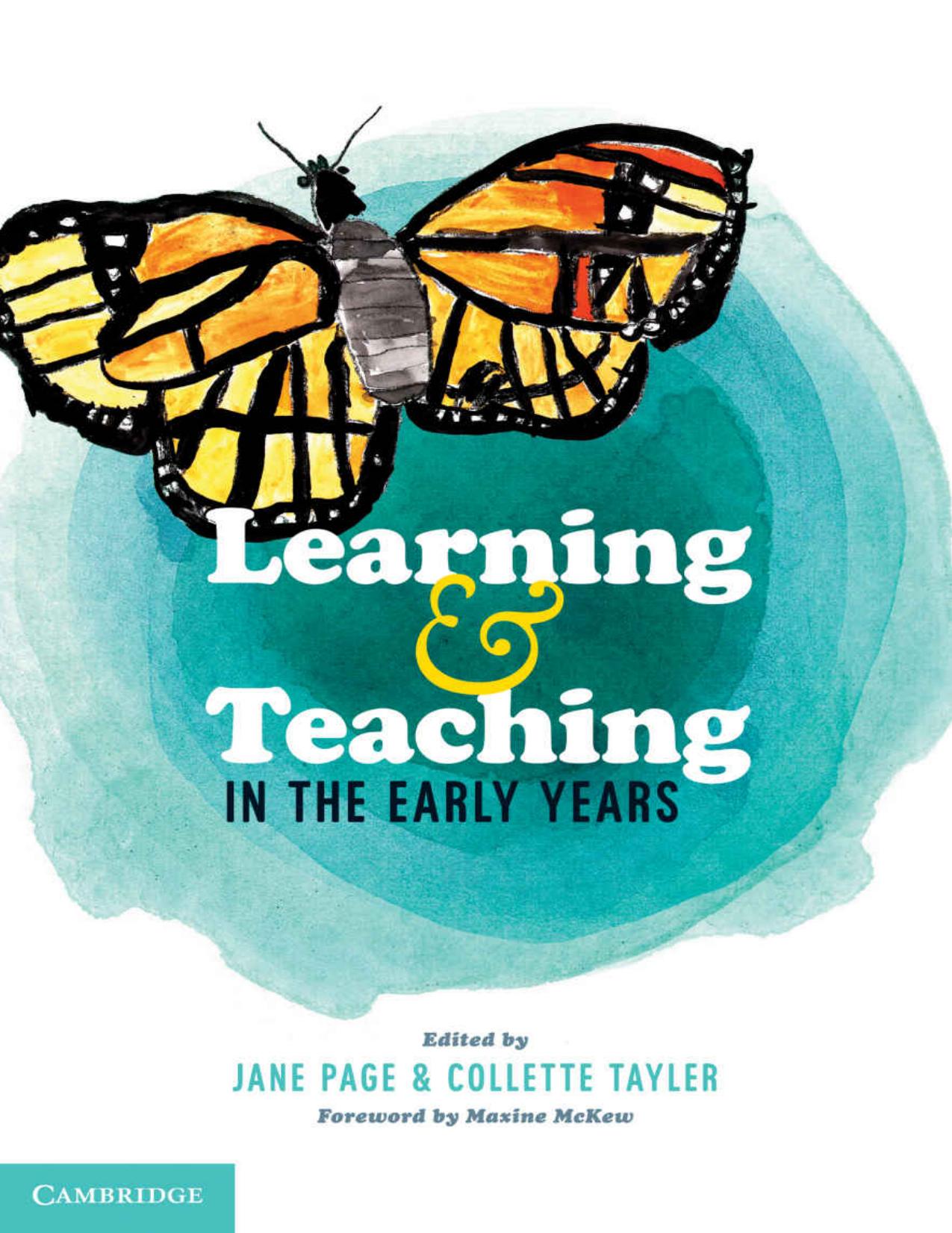Learning and Teaching in the Early Years 1st edition by Jane Page, Collette Tayler 1107697182 9781107697188
$70.00 Original price was: $70.00.$35.00Current price is: $35.00.
Instant download Learning and Teaching in the Early Years after payment
Learning and Teaching in the Early Years 1st edition by Jane Page, Collette Tayler – Ebook PDF Instant Download/Delivery: 1107697182, 9781107697188
Full download Learning and Teaching in the Early Years 1st edition after payment

Product details:
ISBN 10: 1107697182
ISBN 13: 9781107697188
Author: Jane Page; Collette Tayler
Learning and Teaching in the Early Years provides a comprehensive, contemporary and practical introduction to early childhood teaching in Australia. A strong focus on the links between theory, policy and practice firmly aligns this text with the Early Years Learning Framework. Written for students of early childhood programs, this book covers learning and development, as well as professional practice in teaching children from birth to eight years. In recognition of the evolving role of educators, topic areas include learning, teaching, working with families, leading, advocating and researching. Each chapter contains learning objectives, key terms and reflection points. Detailed case studies document the intersection between research, policy and practice, enhancing pre-service and practicing educators’ appreciation of how a policy-aligned approach reinforces learning and development in the early years. This text draws on the latest research to present children’s learning as a dynamic and active process requiring specific, intentional teaching behaviours.
Learning and Teaching in the Early Years 1st Table of contents:
Chapter 1 Learning and teaching in the early years
- Introduction
- Features of learning in the early years
- Understanding children’s learning and cognition: contributions from neuroscience, educational and psychological sciences
- Forming the mind: learning as mental activity
- Memory and learning capability
- Maturation, memory and learning
- Language and learning as a social relational process
- Learning and the growth of self-regulation
- Values within learning contexts: the teacher role
- The active ingredients of high-quality early childhood programs
- The structural characteristics of early childhood programs
- The process characteristics of effective programs
- Planning for learning
- Collecting evidence of learning to build teaching effectiveness
- Effective assessment needs a clearly defined purpose
- Effective assessment of cognition and well-being is based on multiple sources of information
- Assessment must be sensitive to the individual setting
- Sound assessment practice includes children’s own reports
- Assessment of children’s progress includes evidence from parents or primary caregivers
- Assessment is an opportunity for multidisciplinary collaboration
- Different tools offer different kinds of knowledge on children’s learning and development
- Conclusion
- Further reading
- References
Chapter 2 A policy frame on early learning and teaching
- Introduction
- Direction from research: some influences and dilemmas of Australian early childhood policy
- Australia’s federated system of government
- Policy on early learning
- The Early Years Learning Framework
- The National Quality Framework and Standard
- The impact of reform on teachers and teaching
- Conclusion
- Further reading
- References
Chapter 3 Young children as learners with rights
- Introduction
- Repositioning young children as active social agents: Australian policy context
- Background to the UNCRC
- A case for advancing the rights of young children
- The UNCRC and the National Quality Framework for Early Childhood Education and Care
- Australian documents supporting young children’s rights, ethics and advocacy
- Young children as holders of rights: implications for teaching and learning
- The right to life and development
- The right to non-discrimination
- The right to be heard
- The best interests of the child
- Conclusion
- Further reading
- References
Chapter 4 Teaching for learning
- Introduction
- Early years teaching and learning in the Australian policy context
- Pedagogy: the selection and use of evidence-based teaching strategies
- The balance, purpose and intent of children’s learning within play-based programs
- Conclusion
- Further reading
- References
Chapter 5 Partnering with families to promote learning
- Introduction
- The family as context of child development
- Family-centred practice in the guiding documents
- A theoretical framework for the home learning environment
- A model of the home learning environment
- Teachers, children and children’s families
- Collaboration and partnership
- Establishing and maintaining partnerships with families
- Establishing collaborative partnerships with families
- Maintaining partnerships with families
- Conclusion
- Further reading
- References
Chapter 6 Leading for learning
- Introduction
- Conceptualising educational leadership
- A model of educational leadership in ECEC settings: building the climate and commitment to advance young children’s learning outcomes
- Building and enacting the vision and maintaining a quality service
- Building and maintaining a productive team culture
- Building a professional learning community
- Committing to professional learning
- A model of educational leadership: tracking the effectiveness of educational leadership on young children’s learning outcomes
- Creating new knowledge of children’s learning
- Enacting an evidence-based practice approach
- Assessment for learning: reviewing evidence of children’s learning
- Improving pedagogy with children, families and colleagues
- Conclusion
- References
Chapter 7 Advocating for learning
- Introduction
- Nature of advocacy
- A policy stance on advocacy and change
- Levels of ECEC policy advocacy and change
- The place of research in advocating for children and their learning rights
- Advocacy at the practice level
- Conclusion
- Further reading
- References
Chapter 8 Research for learning and teaching
- Introduction
- The role research plays in shaping practice and policy in early learning and teaching
- Types of research in the early years
- Communicating research
- Research participation in the early years: teacher and children as co-researchers in learning
- Research ethics in the early years
- Ethical principles
- Informed consent
- Respect for participants
- Conclusion
People also search for Learning and Teaching in the Early Years 1st:
8 learning styles
6 learning styles
7 principles of early intervention
6 learning theories


